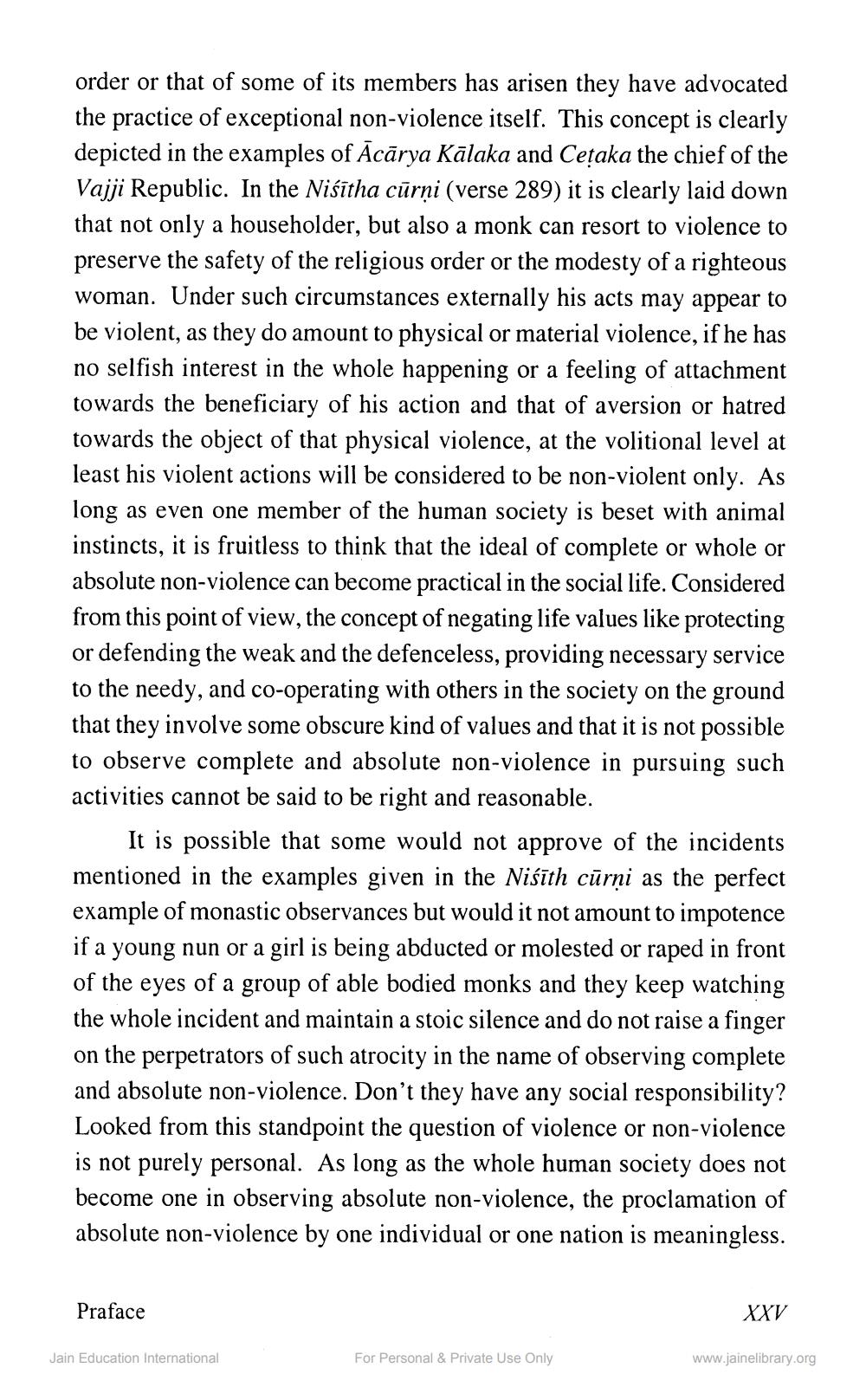________________
order or that of some of its members has arisen they have advocated the practice of exceptional non-violence itself. This concept is clearly depicted in the examples of Ācārya Kālaka and Cetaka the chief of the Vajji Republic. In the Niśītha cūrņi (verse 289) it is clearly laid down that not only a householder, but also a monk can resort to violence to preserve the safety of the religious order or the modesty of a righteous woman. Under such circumstances externally his acts may appear to be violent, as they do amount to physical or material violence, if he has no selfish interest in the whole happening or a feeling of attachment towards the beneficiary of his action and that of aversion or hatred towards the object of that physical violence, at the volitional level at least his violent actions will be considered to be non-violent only. As long as even one member of the human society is beset with animal instincts, it is fruitless to think that the ideal of complete or whole or absolute non-violence can become practical in the social life. Considered from this point of view, the concept of negating life values like protecting or defending the weak and the defenceless, providing necessary service to the needy, and co-operating with others in the society on the ground that they involve some obscure kind of values and that it is not possible to observe complete and absolute non-violence in pursuing such activities cannot be said to be right and reasonable.
It is possible that some would not approve of the incidents mentioned in the examples given in the Niśīth cūrņi as the perfect example of monastic observances but would it not amount to impotence if a young nun or a girl is being abducted or molested or raped in front of the eyes of a group of able bodied monks and they keep watching the whole incident and maintain a stoic silence and do not raise a finger on the perpetrators of such atrocity in the name of observing complete and absolute non-violence. Don't they have any social responsibility? Looked from this standpoint the question of violence or non-violence is not purely personal. As long as the whole human society does not become one in observing absolute non-violence, the proclamation of absolute non-violence by one individual or one nation is meaningless.
Praface
XXV
Jain Education International
For Personal & Private Use Only
www.jainelibrary.org




